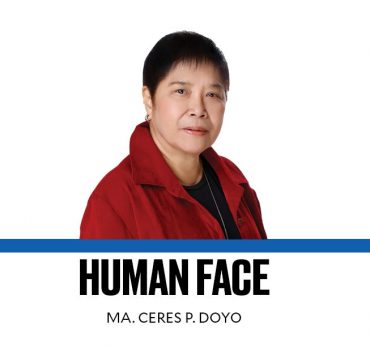Name, shame, and charge them

Firing off initial findings of his promised scrutiny of flood-control projects, President Marcos on Monday talked about a “disturbing assessment” that only 15 contractors have cornered the bulk of the country’s flood control projects.
“Twenty percent of the entire P545 billion budget was awarded to only 15 contractors, five of whom have projects in almost all regions nationwide,” the President said in a press conference where he launched a website (sumbongsapangulo.ph) for monitoring flood control projects.
The President showed the 15 contractors that hold a virtual monopoly on flood control contracts: Legacy Construction Corp.; Alpha & Omega Gen. Contractor & Development Corp.; St. Timothy Construction Corp.; QM Builders; EGB Construction Corp.; Topnotch Catalyst Builders Inc.; Centerways Construction and Development Inc.; Sunwest, Inc.; Hi-Tone Construction & Development Corp.; Triple 8 Construction & Supply, Inc.; Royal Crown Monarch Construction & Supplies Corp.; Wawao Builders; MG Samidan Construction; L.R. Tiqui Builders, Inc.; and Road Edge Trading & Development Services.
The big revelation was a follow up to Marcos’ recent State of the Nation Address when he called out collusion between government officials and private behind shoddy or nonexistent flood control projects that swamped cities and provinces in floodwaters, sunk homes, and killed people.
Same contract price
This, despite the steady increase in the budget for such projects under the Department of Public Works and Highways (DPWH) since 2022. From P128 billion in 2022, the fund now stands at P244 billion this year, on top of separate funding for anti-flood measures in local government units and national government agencies.
On top of the monopoly, the President noted that most of the flood-control projects did not necessarily go to the most flood-prone provinces. He also said that most of the projects have the same contract price despite them being constructed in areas with varying topography and terrain.
And yet, despite the damning data, the President declined to name names. He urged the public to send information about spurious projects to the newly created website, and even dared investigative journalists to do the job of finding out who the top contractors are and their links to corrupt government officials.
“It is exceedingly important that people get involved,” Marcos said, adding that he himself would read the reports.
Connect the dots
Some of the contractors and their benefactors are not exactly a secret. For instance, Ako Bicol party list Rep. Zaldy Co, who however maintained that he had divested from Sunwest Inc., though his relatives remain beneficial owners. Senate President Francis Escudero’s biggest campaign donor, Lawrence R. Lubiano of Centerways Construction and Development Inc., was named in several news reports as having bagged P5.4 billion worth of flood control projects in Bicol. While Escudero has dismissed the reports as part of “a demolition job,” keen political observers can easily connect the dots.
Pasig City Mayor Vico Sotto also identified several top contractors in the President’s list as being owned by his political rival, the Discayas, such as Alpha & Omega and St. Timothy Construction, among others.
The President, however, should not leave the sleuthing and reporting to private citizens. While tips can be handy, it is behooves on his office to walk his talk. With all the agencies that are mandated to conduct audits of government projects, it would be easy for the government to identify the projects that have fallen to corruption or wastage.
Independent investigation
The President should now send the strong signal to the entire government bureaucracy and workers to break their silence, and abandon their complicity, in the corruption that attends government projects—from allocation by lawmakers, to bidding and awarding of contracts to contractors, to the project implementation.
Mr. Marcos should also heed calls for an independent investigation of corruption in flood-control projects, since obviously the DPWH, long been perceived as one of the most graft-prone agencies, cannot be left alone to handle the probe. Investigation by the House of Representatives can also be suspect, with several lawmakers reportedly involved in the corruption schemes while some were even acting as contractors themselves.
An independent probe must have technical advisers testifying on the projects’ quality and other mandated specifications. Government auditors should meanwhile speak up on budget use to make sure that “for the boys,” SOP, and other bribes become a thing of the past. Charges of graft and plunder should be filed when warranted.
When it comes to ensuring public safety in government infrastructure and the prudent use of limited resources, no initiative is too ambitious nor too complicated. But there must be political will to see it through.

















Repealing CPD law: A step back for PH nursing